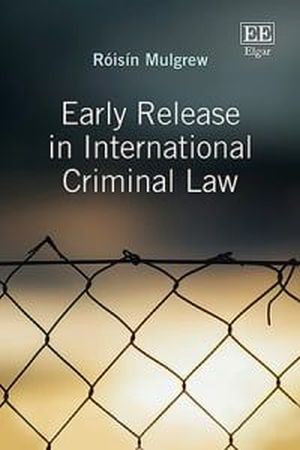
This book provides a comprehensive and critical account of the law, policy and practice underpinning early release systems in international criminal law. Róisín Mulgrew explores the distinct forms that early release can take and investigates key questions. Who makes and influences early release decisions? What factors are taken into account? Can conditional release be granted? And if so, who supervises this and what happens if conditions are breached?
Highlighting both institutional-specific discussions and systemic critiques of early release in international criminal law, this book provides fresh insights into the reach, depth and impact of international punishment. Mulgrew assesses and compares the systems in place at a variety of international criminal courts for unconditional and conditional early release, and sentence reduction. She also examines key topics including recall, victim participation and compassionate release.
Expertly tracing and evaluating the evolution of early release, this book is an essential read for researchers and scholars in international and comparative criminal law, critical criminology and penology, and transitional justice and rights. It is also of great interest to practitioners and judges in international criminal courts and tribunals, as well as domestic criminal justice systems dealing with atrocity crimes.